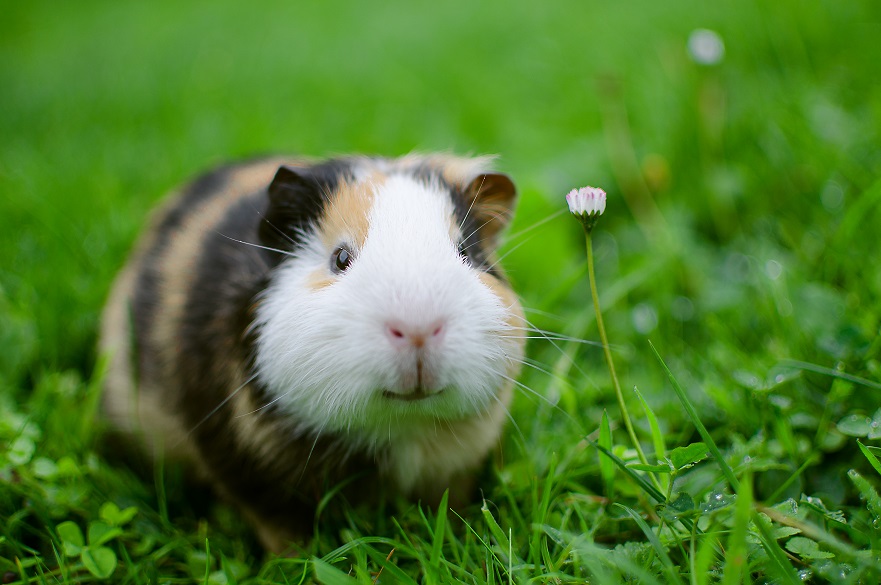Small pets at risk of heatstroke, researchers warn – and cases expected to rise alongside global temperatures
Researchers in animal welfare are urging people to be aware of the risk of heatstroke in their pets after a study showed how dogs, cats, guinea pigs, rabbits and ferrets are being taken to veterinary clinics with the condition.
By Dave Rogers | Published on 14 February 2022
Categories: Press office; Research; School of Animal, Rural and Environmental Sciences;

A team at Nottingham Trent University analysed data relating to small animals seen by UK vets over a five-year period, as well as the triggers and risks.
They found that most affected were dogs, with 146 cases of heatstroke. Three quarters of cases were attributed to the dogs being exercised, while seven percent were due to being confined to a vehicle.
Brachycephalic dog breeds – those with flat faces such as bulldogs – were particularly at risk, making up a fifth of cases.
Sixteen cats were seen by veterinarians for heatstroke, with older cats – those aged over 15-years-old – accounting for the highest number of cases.
Hot weather accounted for eight guinea pigs, three rabbits and a pet ferret being treated for the illness, with all of the rabbits also belonging to brachycephalic breeds.
The researchers – based in the university’s School of Animal, Rural and Environmental Sciences – say that cases will continue to rise as we face warmer weather due to climate change.
As expected, cases were most common during the summer months, with cases in dogs spanning between April and October.
The most commons symptoms in all animals studied included abnormal breathing, lethargy, collapsing, and gastrointestinal issues, such as diarrhoea.
Data for the study was obtained from veterinary practices which participate in the ‘Small Animal Veterinary Surveillance Network’ (SAVNET) and so overall figures for heatstroke will be far greater, the researchers say.
They also argue that many cases may not be seen by veterinary clinics because they go unrecognised by owners due to a lack of awareness of the potential risks and triggers.
The researchers say that cats regularly seek warm areas to sleep and can become trapped in greenhouses and sheds, which could account for some cases going unreported.
Caged pets such as rabbits, guinea pigs and ferrets are at risk of heatstroke due to confinement in hot accommodation, for example if their housing provides limited access to shade, or cooler temperatures, they add.
“Heat-related illness can affect all pets and is likely to become more common as global temperatures rise,” said researcher and veterinarian Emily Hall.
She said: “Our findings highlight the need for better public awareness of heatstroke and the risk to all animals. The fact that brachycephalic dogs and rabbits were overrepresented in our study suggests that owners of these animals should be particularly vigilant during hot weather.
Nottingham Trent University researcher Dr Anne Carter added: “There is a misconception that heatstroke in pets only relates to dogs in hot cars and we need to do more to raise awareness of risk factors not only for dogs but in the wider pet population.
“Owners of small animals such as rabbits, ferrets and guinea pigs may need to review their pet’s housing and take steps to keep their pets cool in the warmer months to reduce the risk of heatstroke.”
The study, which also involved the University of Liverpool, is published in The Open Veterinary Journal.
Notes for Editors
Press enquiries please contact Dave Rogers, Public Relations Manager, on telephone +44 (0)115 848 8782, or via email.
Nottingham Trent University (NTU) received the Queens Anniversary Prize for Higher and Further Education in 2021 for cultural heritage science research. It is the second time that NTU has been bestowed the honour of receiving a Queen’s Anniversary Prize for its research, the first being in 2015 for leading-edge research on the safety and security of global citizens.
NTU was awarded Outstanding Support for Students 2020 (Times Higher Education Awards). It was the University of the Year 2019 (Guardian University Awards, UK Social Mobility Awards), Modern University of the Year 2018 (Times and Sunday Times Good University Guide) and University of the Year 2017 (Times Higher Education Awards).
NTU is one of the UK’s largest universities, with over 33,000 students and more than 4,000 staff located across five campuses. It has an international student population of 4,000 and an NTU community representing around 160 countries.
In the past 15 years, NTU has invested £450 million in tools, technology and facilities.
NTU is in the UK’s top 10 for number of applications and ranked first for accepted offers (2019 UCAS UG acceptance data) It is also among the UK’s top five recruiters of students from disadvantaged backgrounds.
75% of NTU students go on to graduate-level employment or graduate-entry education / training within fifteen months of graduating (Guardian University Guide 2021).
NTU is 4th globally (and 3rd in the UK) for sustainability in the 2021 UI Green Metric University World Rankings (out of more than 900 participating universities).